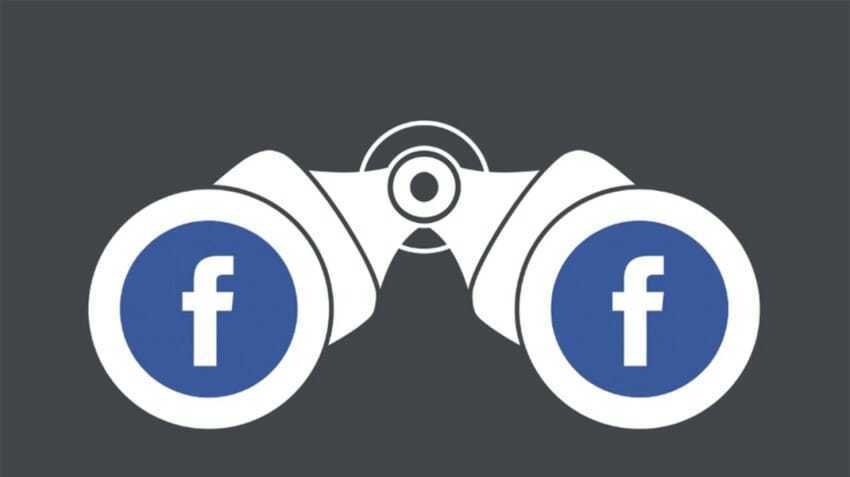At the end of 2017, Facebook had 2,2 billions of active monthly users. The creation of Zuckerberg seems to extend to people of all ages in every corner of the earth.
Indeed, Facebook is so ubiquitous that everyone expects you to have one account. If you haven't they look at you strangely. How dare you not own a digital world?
But if you are one of the few who do not have a profile on Facebook, you are probably ahead of all the others who take pride in the event. If you still have an account, it's time to look a little in the mirror. Is it time to stop using Facebook?
Here are five reasons why you should delete your Facebook profile.
Facebook monitors everything on the web
Yes, there are many problems with the usability of Facebook. However, perhaps the most worrying is the way he watches you on the web.
To be fair, Facebook provides its services free of charge, but in return we accept our data to one of the largest advertising agencies in the world.
But Facebook doesn't just track you when you use its services. To put it better, the social network monitors you even if you do not have an account.
This particular issue was recently published when the Belgian authorities decided that Facebook had to erase all data collected from Belgian citizens. Prosecutors have reported that Facebook was illegal in collecting data.
The only way to show your dissatisfaction with this intrusion into your private life is to move away from the service.
Experiments with people
Facebook 2012 conducted an experiment on 689.000 users.
For several months, half of the “participants” saw positive content and the other half negative.
In addition to the ethical issues that arise, one might think that negative content could have very negative effects on users who already had emotional problems.
And it's not the only time Facebook has played with the feel of its users. There are at least seven more examples in the last decade. so we can say that Facebook sees you as a laboratory rat.
Fake News
For the past six years, Facebook has been increasingly trying to become one portal news. So since the company wishes to make this turn, it is also charged with the obligation of reliability.
But everything seems to have failed. Facebook allows fake news to circulate, influencing public opinion, and shaping election results.
If Facebook is the main source to watch the news, it's probably time to leave.
Confidential privacy practices
Facebook has greatly complicated the privacy settings since it was released online. Do not you believe it? We quote an extract from Zuckerberg in the Guardian of 2010:
“In simple terms, many of you thought that [privacy] checks were too complicated. Our intention was to give you a lot of detailed checks, but that might not be what many of you wanted. We lost the mark. ”
Is the situation better today, eight years later? Yes, Facebook offers privacy settings for almost everything, but you need a whole manual to find every hidden option. It is not deliberately user-friendly.
So why confidentiality settings are so confusing? Here is a snippet of FaceNoX's Privacy Policy:
"No personal information you submit to Facebook will be available to any user of the site who does not belong to at least one of the groups you have specified in your privacy settings."
And below is an excerpt from her current policy:
“When you use third-party applications, websites, or other services that use or are embedded in [Facebook], they may receive information about what you register or share. […] We use all the information we have about you to show you relevant ads. […] And we are transferring information to vendors, service providers and other partners. ”
We probably do not have to say more. The above quotes tell their own story. Facebook wants to ignore the settings so it can use your data.
Facebook has forgotten its roots
When Facebook first launched it was truly revolutionary. For sure, websites like MySpace had some previous success, but Facebook was the first network that was really suitable for widespread use.
And we loved it. Our feed was packed with photos and updates from our close friends.
But over time the newsfeed changed. There is a flood of posts from advertisers, pages you liked years ago, and news companies making the network lose its original charm.
FaceBook's leadership seems to recognize the problem. In January 2018, Zuckerberg announced that "you will see more of your friends, family and groups" in your newsfeed over the next 12 months.
It sounds very promising, but we all know that Facebook will not do what was before 2010.
Should we stop using Facebook?
Above, we did not mention other more obvious issues such as missed hours in the social network, or the need to prove to everyone how happy we are. Happiness is shown, with images and smilies, and misery is not forgiven. Demonstration and glamor are glorified, and sad news gets recipients with like and share.
If you like all of this, keep going…






However, there are many, many cases where FB may seem very useful. (eg useful forums for many different topics).
For all other cases, however, it is clear that one should not take it too seriously.
At the moment… I like not to be involved with anything… I have my reasons but definitely I will not be occupied with social media .. Till European court will fix at first the connections of Google with bad bloggers… They function like a cancer .. Believe me…
I agree with all the article .. You can not trust any social media anymore .. It is a shame of course !!!!! But there aren't any data now which are reliable… We are talking about fake .. Only fake !!! ???